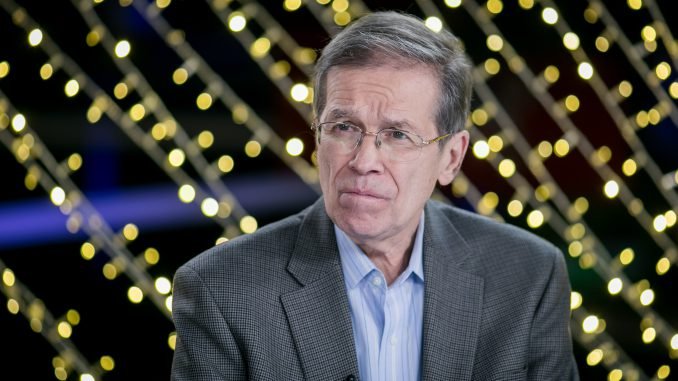
The multiplicity of political parties is due to politicians’ ambitions, their desire to lead their own political party no matter what, the inconsistency of political beliefs, citizen’s distrust in political parties and their inclination to vote for ever new political entities. In a different respect, the political situation is fairly consistent. While this is now the seventeenth cabinet, snap elections were held only once, in 1992. The coalitions led by A. Kubilius and A. Butkevičius lasted their full terms. Furthermore, the change in cabinets was often due to the parties’ internal disputes and personal conflicts, which had little influence on the overall course of politics. Take how during the Conservatives‘ rule in 1996-2000, there were three cabinets and three prime ministers, however for the entire time, V. Landsbergis firmly held power in his hands.
Two changes occurred this year, which could significantly change Lithuania’s political landscape. With the foundation of the Lithuanian Social Democratic Labour Party (LSDDP), the fracture of the Social Democratic Party has gained a concrete organisational shape. Status Quo Ante will not be regained, thus the longest ruling party in Lithuania, the left political wing monolith has turned into a second-tier political power, which will celebrate taking 10% of the vote in the elections. The LSDDP will receive even less support and is unlikely to celebrate it’s decade anniversary.
The Liberal Movement is also in its death throes. Ever more influential members withdraw from the party, following the example of Vilnius Mayor R. Šimašius and A. Armonaitė. The party’s Vilnius branch, led by Šimašius, decided to run in the coming municipal elections not under the party’s banner, but under that of a civic electoral committee. With a number of members leaving the Vilnius branch, it re-established itself. The influential Klaipėda branch also broke apart. Same as Šimašius, Mayor V. Grubliauskas intends to assemble an electoral committee and does not dismiss the possibility to have political links to Šimašius in the future. Armonaitė has already announced she intends to establish a new political party next year, the founding congress of which should happen at the start of next year.
While a number of analysts believe that the new party could have prospects, I see no basis for optimism. It is hard to count, just how many parties held or called themselves liberal, but none, bar the Liberal Movement in 2013-1026, had any serious chances to enter the top three most voted for parties’ trio. Neither the new formation, however it may name itself, nor the old one will become a serious political power. You could accuse Šimašius, Armonaitė and Grubliauskas of opportunism, saving their political hides, however their decisions are in no small part due to the inadequate Lithuanian law enforcement system. While E. Masiulis was arrested in 2016, we will likely only hear a sentencing in late 2019. That is to say – after the elections. The desire to cut ties to a political party enveloped in corruption allegations is understandable.
The main responsibility for the LSDP breakup falls upon Gintautas Paluckas. Having unexpectedly won the party chairman elections, he rushed to be rid of the party’s veterans. Not a week had gone by and he announced that A. Butkevičius will not be his deputy because apparently the party cannot have two chairmen. All important reform questions would be discussed with the Seimas group, but key decisions will be made by the party council or congress. Paluckas threatened that if Seimas group members won’t vote in accordance to the council, “questions of their position on the 2020 Seimas electoral roll will arise.” If Paluckas expected that the veterans will calmly swallow this pill, he was greatly mistaken. A number of the old guard withdrew from the party and Seimas group, forming the LSDDP.
When the breakup occurred, Paluckas assured that, “In disputes and struggles, beautiful things are born. Today we are born anew.” On the LSDDP’s founding day, the party’s new chairman G. Kirkilas stated, “The new party is our gift for Lithuania’s centenary.” I do not know, how much Lithuania will celebrate this gift, but the traditional opponents of the Social Democrats will certainly be thankful to the political figures, who broke down the party’s unity.
During a recent LSDP conference, there was an attempt to draw the situation in rosy colours. When presenting the party’s new vision, Paluckas assured that no one else has such a consistent vision, especially because during its creation, the “examples of foreign friends” were used. The commitment was made to revitalise traditional social democratic values, seek to create a universal retirement pension, improve education and such. It is hard to take such promises seriously, remembering that over 16 year of rule, the LSDP was not even able to implement progressive taxation, speaking about it only before elections or after losing them.
The pledge was made of revitalising the party, drawing in youth, but a renewal is nowhere in sight, considering the candidates chosen in the coming European Parliament and presidential elections. European Commissioner Vytenis Andriukaitis was selected as presidential candidate. Perhaps his experience in candidacy was considered, he ran from president in 1997, 20 years ago and also in 2002. His third attempt will be no better. The European Parliament electoral roll is headed by veterans as well – V. Blinkevičiūtė, R. Budbergytė, Juozas Olekas, Julius Sabatauskas and Kaunas politician Orinta Leiputė. The signs of renewal need a microscope to be seen.
The Central Electoral Commission announced that 77 civic electoral committees registered for the municipal elections, far more than in 2015. This is yet another sign of how the Lithuanian political landscape is changing.

Be the first to comment